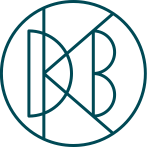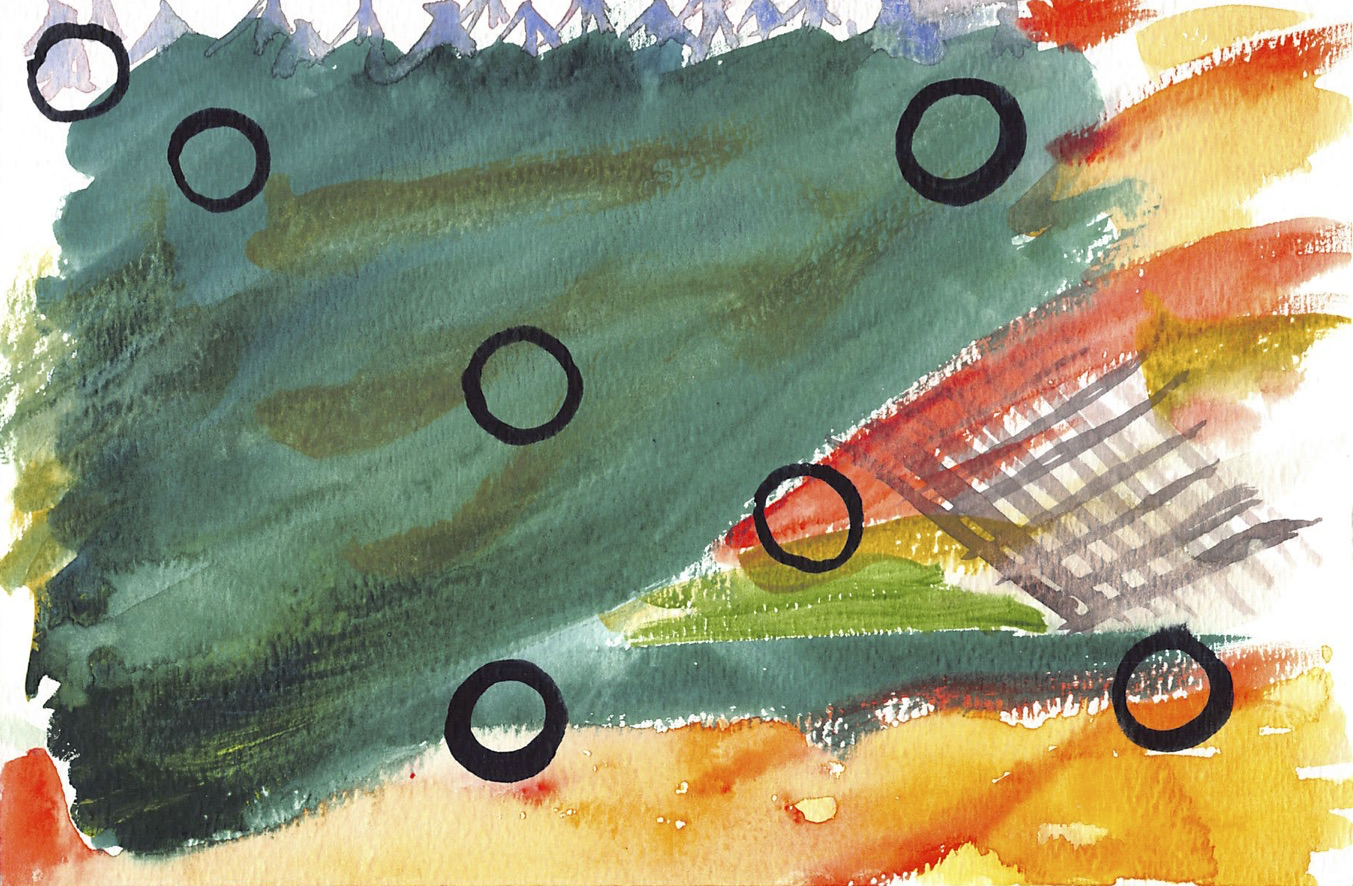The problem with presence
A painting from a class I took at Root Division in San Francisco in January 2017. I started the painting, then we passed it around the table and each person added their own touch. I think it was Daniel who added the black circles—I have a dim memory of watching him trace them with care.
Yesterday, I raced to the finish line of Laura Vanderkam’s latest book on time management, Off the Clock. It felt like wholesome candy to me: easy to read and packed with evergreen ideas expressed sensibly, plus a few surprises.
For me, the biggest surprise was Vanderkam’s introduction of three selves: the experiencing self, the anticipating self, and the remembering self. In her view, the anticipating and the remembering selves are aligned with each other, but they’re both at odds with the experiencing self. “Bliss is possible in the past and in the future,” she writes, “but seldom in the present.” What! This is news! But the more I thought it over, the more sense it made. Vanderkam points out that the experiencing self exists in a meat sack that’s constantly full of low-grade annoyance, physical pain, and preoccupation. The anticipating and remembering selves exist on another plane. “Creating more memories—and hence creating more time—requires privileging the anticipating and the remembering selves above the experiencing self in ways that require serious self-discipline,” she writes; “If my anticipating self wanted to do something, my remembering self will be glad to have done it. Indeed, my experiencing self may even enjoy parts of it. I am tired now, but I will always be tired, and we draw energy from meaningful things.”
I am tired now, but I will always be tired. This was shocking to me. I think some part of me believed that one day, I would catch up on life and catch up on sleep and be done with exhaustion.
But I can see that it’s true. The painting that leads off this post came out of a class I took at the start of 2017, during a ridiculously busy time at work. I remember showing up and feeling listless, spent, barely able to hold a conversation with my friend Daniel, who’d signed up for the whole series with me. I missed one and possibly two of the six sessions, and was generally left with a feeling of disappointment that painting didn’t somehow become a new hobby. In fact, I haven’t painted since.
Yet I remember those days in January 2017—the ones where we walked Quip’s old offices to the art studio in SOMA, once in driving rain—much more vividly than any other days from that January. More than most days in the first half of last year. Whatever I was desperately trying to stay on top of is now in the past, and all the time I spent trying to stay on top of it is, too. It’s the random, novel stuff I did while tired that’s lodged in my brain as marking that time.
This realization has the potential to profoundly change the way I spend my days. I think of myself as dwelling in the past and the future, and I’m always coaxing myself to be more present. The more present I try to be, the more I make comfort the most important thing in the world. But maybe, in all this comfort and familiarity, I’m actually depriving my ravenous past and future selves from the hope and memories they crave. I’m going to take this mindset into today and see where it takes me.

